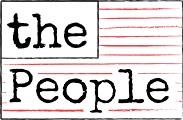Civics U: Equal Rights
A preface. My purpose in writing the Civic U column is not firstly to debate the many social and political issues that confront our country. Rather, in light of the polarization that divides us, my first intent is to review the foundational principles, ideals and developments that have been the basis of a good degree of strength and unity in our history. I hope that reviewing even familiar things about our history and our system of government can help us consider where we have been, and why; where we are and why; and what we hope for our nation’s future.
Equal
People do not always or fully live up to their ideals. Individuals and societies do not fully live up to and fulfill the ideals of their culture. Hold that thought.
And what are the highest ideals of American culture? Surely, for many purposes, the deepest root and expression of our country’s ideals and principles are these, as framed in the Declaration of Independence: We hold these Truths to be self-evident, that all men are created equal, that they are endowed by their Creator with certain unalienable Rights, that among these are Life, Liberty, and the Pursuit of Happiness.
Every element of this declaration is worthy of serious examination and reflection. But for now, let us consider only one: that all men are created equal. This is one of the most powerful and relevant principles in our society and government today, and today we understand this to mean the equality of every individual citizen and member of our society.
But back up a bit historically. When the Continental Congress adopted this Declaration as drafted by Thomas Jefferson, they were not thinking of individual equal rights – of the rights of individual persons. They were thinking of the equal rights of a “people” or “peoples”, as in the rights of the American colonies in relation to the British people and government (and king). They put forth their cause as the right to be free and equal states – equal with the state of Great Britain – that the people of the colonies were equal with the people of Great Britain in deserving to be free from oppression and to be free to form and establish a just government to serve their safety and happiness. The concern at that point was about the equality and freedom of the people as a body politic, not firstly about individual equality or freedom. (“When Thomas Jefferson penned “all men are created equal,” he did not mean individual equality, says Stanford scholar” ) And oh yes, even the rights of the people as a group and nation were based on a recognition of the underlying rights of individuals to life, liberty, and the pursuit of happiness.
That is why it became necessary later to add a bill of rights and new amendments to the Constitution to further define and establish the rights of individuals – to attain, as stated in the pledge published firstly in 1892, “liberty and justice for all”.
So even though as a country or government we have not fully fulfilled this principle and goal, we do now hold that all men – all persons – are created equal.
Did this say that all men are created the same? Not at all. Of course not. It means, firstly, that all persons are equal before the law, that each and every person is entitled to the full protection of the law. And this has many, many applications.
And further, beyond its legal meaning, it should mean that each and every person is entitled to fair treatment socially and to equal opportunity to enjoy, as already stated, their unalienable Rights, including Life, Liberty, and the Pursuit of Happiness.
What a marvelous foundation has been laid for our government, our society, our culture, for us to live up to and fulfill!

